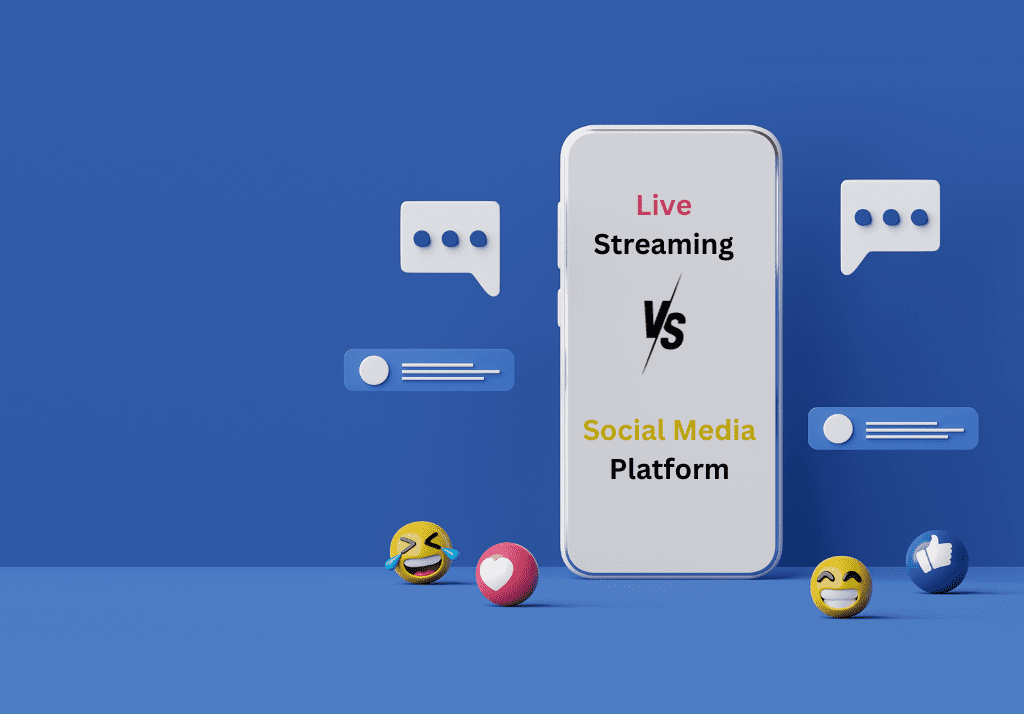In today’s digital realm where everyone is constantly connected, live streaming platforms and social media platforms have become indispensable tools for communication and expression. Whether you’re a content creator, business owner, or simply an individual looking for a perfect platform to shop, these platforms offer a variety of features to suit your needs. However, with so many options available, it can be challenging to determine which platform is the best fit for you. In this blog, we will be diving into a head-to-head comparison of live streaming platforms versus social media platforms, so you can make an informed decision.
Live streaming platforms, such as MyLiveCart, Twitch, Channelize, etc. have gained significant popularity in recent years. These platforms allow users to broadcast themselves in real-time, engaging with audiences across the globe. The key advantage of live streaming platforms is the ability to create an intimate and interactive experience. Whether you’re hosting a Q&A session, performing a live concert, or showcasing your gaming skills, live streaming platforms offer a unique opportunity to connect with your audience on a deeper level. Additionally, these platforms often come equipped with engaging features such as live chat, allowing viewers to interact with both the host and other viewers, creating a sense of community.
On the other hand, social media platforms like Facebook, Instagram, and Twitter have become a staple for billions of users worldwide. These platforms allow users to share text, photos, videos, and other forms of content with their network of followers. The main advantage of social media platforms is their wide reach and ease of use. With just a few clicks, you can share your thoughts, experiences, and creations with a vast audience. Social media platforms also provide a variety of features such as hashtags, filters, and tagging options, which can enhance the visibility of your content and help you connect with like-minded individuals.
When it comes to monetization opportunities, both live streaming platforms and social media platforms offer different avenues. Live streaming platforms often provide opportunities for content creators to generate revenue through subscriptions, donations, and sponsorships. With a loyal fan base and engaging content, creators can earn a substantial income through these platforms. All you need to do is embed a code into your website provided by such platforms. By doing so, you can experience how easy it is to integrate live streaming into your ecommerce website and go live within a couple of clicks.
Social media platforms, on the other hand, offer various advertising options for businesses and content creators to promote their products and services to a wider audience. By leveraging social media services for targeted ads, sponsored posts, and influencer collaborations, individuals and businesses can capitalize on the vast user base of social media platforms to boost their brand and generate sales.
One crucial aspect to consider when choosing between live streaming platforms and social media platforms is the nature of your content and your target audience. If you have a specific niche or expertise that requires real-time engagement and interaction, live streaming platforms might be the way to go. However, if you’re looking to reach a broader audience and share a variety of content, social media platforms offer more versatility.
Conclusion
In conclusion, both live streaming platforms and social media platforms have their strengths and weaknesses. Live streaming platforms provide an intimate, interactive experience, perfect for content creators looking to engage with their audience on a personal level. On the other hand, social media platforms offer a wide reach, allowing individuals and businesses to share various forms of content with a vast audience. Ultimately, the choice depends on your content, target audience, and your goals. So go ahead, explore the options, and choose the platform that aligns best with your vision and objectives.
